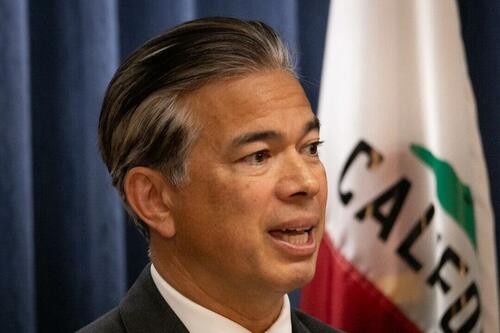US Office Focused On Shipbuilding Aims To Counter China’s Maritime Dominance
Authored by Mike Fredenburg via The Epoch Times,
Creating an office of U.S. shipbuilding to facilitate America’s return to being a true maritime power is long overdue and is necessary to counter China’s growing maritime dominance.
At the end of World War II, the United States had over 100 shipyards, and its flagged fleet, the largest in the world, carried 57 percent of U.S. trade, while the majority of world trade was carried in U.S.-built ships.
Today, only about 0.2 percent of global commercial tonnage is being carried in ships built in the United States. Collectively, China, South Korea, and Japan build over 90 percent of the world’s large commercial ships. And with China building over 50 percent of the world’s gross shipping tonnage, it is by far and away the world’s largest shipbuilder, with 232 times more shipbuilding capacity than the United States.
While the lack of commercial shipbuilding capacity is not the only reason we have seen the U.S. Navy decline in size and capability, it has created an environment that makes correcting the issues plaguing the Navy very difficult. Indeed, the lack of commercial shipbuilding is arguably the root cause of our Navy’s decline in readiness, its exploding ship costs, and its inability to hold vendors accountable when they deliver underperforming ships overbudget and years behind schedule.
Examples of underperforming, overbudget ships include the Constellation-class frigate, the Littoral combat ship, the Ford-class carriers, and the massive Zumwalt destroyer. It is the failures in these key shipbuilding programs that has led to the decline of the U.S. Navy’s size and readiness. Moreover, the vendors associated with these failed and or grossly underperforming programs have at worst received a slap on the wrist and are collectively lined up to receive many hundreds of billions more in U.S. Defense contracts over the coming decades.
Shipbuilders have been able to underdeliver with near impunity, in part due to the fact that they are the only game in town, i.e., if you cancel major defense contracts then the government-dependent companies will go out of business and there will be no shipbuilding capacity. For example, there is currently only one shipbuilder that can build and execute the Refueling and Complex Overhaul work on U.S. nuclear-powered aircraft carriers. While there are two firms that can build U.S. nuclear submarines, they are suffering from a lack of skilled labor. In the vast majority of cases, the prime contractors who build the Navy’s ships are almost wholly reliant on military contracts to survive.
All this means that when contracts are put in place, they are not just put in place to deliver the most powerful ships at the best price, they are put in place to ensure that the company executing the contract can keep its people employed from contract to contract. Thus, contracts are strung out for many years. This makes sense, as having enough people trained up in the skills to rapidly deliver a ship or a number of ships, only to have to let them go when the ships are completed, is not a sustainable business model. Obviously, the Pentagon needs to structure contracts in such a way that defense contractors can stay in business.
However, this leads to the previously mentioned situation where is it well-nigh impossible to hold the defense contractors accountable. This brings us back to the value of having a more robust shipbuilding industry in which major shipbuilders that do business with the Pentagon, also have a robust commercial shipbuilding business. This is the way things were prior to World War II, and for a number of years after the war. For example, while Newport News Shipbuilding has long been the leading vendor when it comes to building U.S aircraft carriers, it also used to also build commercial ships.
But just as important, when the United States had a robust commercial shipbuilding industry, the pool of workers with the skills necessary to build both commercial and military vessels was much larger. This larger pool of skilled workers created a much more resilient shipbuilding environment that benefited the U.S. Navy when it came to negotiating contracts and holding shipbuilders/ship designers accountable.
Currently, China is the world’s largest commercial and military ship shipbuilder. This means China has a whole bunch of shipyards that can build both military and commercial ships. Its massive shipbuilding industry also ensures China has a huge base of workers with the diverse sets of skills and trades necessary to build ships. The U.S. Navy used to be able to count on a large, robust shipbuilding industry that could build both commercial and military ships, but that has not been case since the 1970s.
Today, according to a Congressional Research Service report, three of the 10 commercial oil tankers selected to ship fuel for the Department of Defense (DOD) as part of the newly enacted Tanker Security Program are Chinese-built. As for dry cargo supplies for the DOD, seven of the 12 most recently built ships in the Maritime Security Fleet are Chinese-built. So, the U.S. Navy, along with the U.S. economy, is now highly dependent on ships built in in other countries, including China. This means that not only is the United States no longer a commercial maritime power, but our military is dependent on Chinese-built ships for logistical support. This is not a good state of affairs.
The new office of shipbuilding announced by President Trump earlier this month aims to correct this national security concern, but how? Well, that is a rather complex question, but it will require streamlining of existing regulations, beefing up our steel industry, and yes, it will require government subsidies to be able to compete with China, South Korea, and Japan who all heavily subsidize their own shipping industries.
But if the United States wants to address a serious security concern, and regain its status as a true maritime superpower, taking such actions are not optional.
* * *
Views expressed in this article are opinions of the author and do not necessarily reflect the views of The Epoch Times or ZeroHedge.
Tyler Durden
Fri, 03/28/2025 – 23:25
via ZeroHedge News https://ift.tt/akTRwyo Tyler Durden











